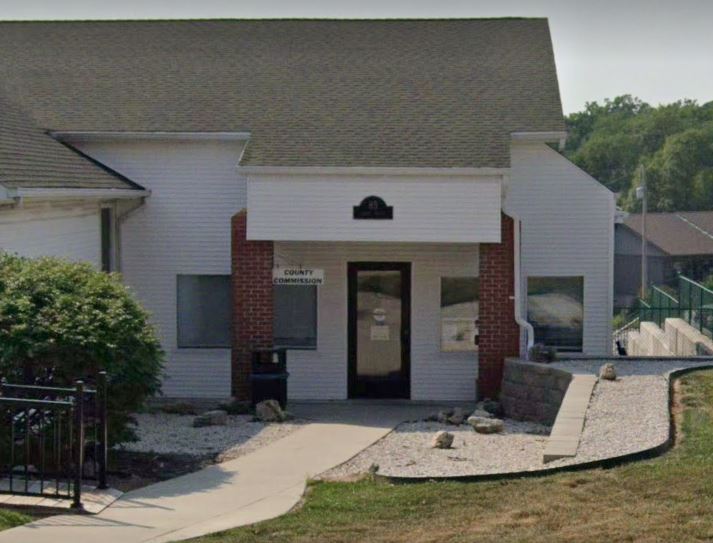Lake Regional Pushing For Early Detection Of Lung Cancer
It’s a topic that many don’t want to talk about…lung cancer.
But it’s also a topic that needs to be addressed through routine screenings because the chances of survival are greatly enhanced with early detection.
“Keep educating them on. You know who. What’s available to them to get screened. And you know who should be looking to do that.”
Lake Regional Community Liaison Stephanie Dehner, speaking on KRMS Radio and TV, who also says there are a few factors that make some people more likely than others to develop lung cancer.
“You’re between 50 and 77. You. You either currently smoke or you quit within the last 15 years. And your smoking history is 20 pack years or more.”
Pack years are determined by multiplying the number of packs one smokes everyday by the number of years smoking.
If you have concerns about lung cancer, or any cancer for that matter, you are encouraged to talk with your provider.
****More info:
According to a survey from the American Lung Association, only 36% of Americans know that lung cancer screening is available to catch this disease early, when it’s easier to treat.
“We know there are hundreds of people in our area who need lung cancer screening but who aren’t aware that their insurance covers it or that it’s available right here at Lake Regional,” said Lake Regional Radiologist Michael Vierra, M.D. “Sadly, without screening, many of these people will die from a disease that can be treated successfully when caught early. Raising awareness about lung cancer screening is absolutely critical to saving lives.”
Who Is High-Risk?
According to Medicare, you are considered at high risk for lung cancer and a candidate for a free screening if all three of these things are true for you:
1. You have a smoking history of 20 pack years or more. To figure your pack years, take the number of packs you smoked per day multiplied by the number of years you smoked. For example: If you smoked two packs a day for 10 years, that would be 20 pack years.
2. You smoke now, or you quit within the last 15 years.
3. You’re between 50 and 77 years old.
Medicare’s guidelines differ from those newly released by the American Cancer Society. The ACS guidelines released on Nov. 1, 2023, recommend lung cancer screening for anyone who is between 50 and 80 years old and has a smoking history of 20 pack years, regardless of whether or when they have quit smoking.
A Life-Saving Tool
Early detection is possible with low-dose computed tomography. LDCT produces cross-sectional images of the entire chest, including the lungs, using special X-ray equipment and sophisticated computers. These images enable doctors to detect very small nodules in the lungs.
Other benefits of LDCT lung cancer screening include:
· It’s fast, painless and noninvasive.
· It uses much less radiation than a traditional CT scan of the chest.
There are possible risks with any screening, including the chance that the test might indicate cancer when no cancer is present. This is called a false positive and can cause anxiety and lead to more invasive tests. Although it’s impossible to avoid all false-positive results, getting incredibly detailed imaging helps.
“Our 128-slice scanner captures exceptional detail, and it does so at a high scan speed,” Dr. Vierra said. “That means patients do not have to hold their breath as long, so we get better images and need fewer rescans.”
What If There’s a Concern?
If screening identifies an area of concern, Lake Regional Pulmonologist Joe Sohal, M.D., can perform an endobronchial ultrasound, also called EBUS. In this procedure, Dr. Sohal uses a scope to view multiple areas of the lungs and to collect tissue samples. He can determine whether there is cancer and if so, how far it has spread — all without invasive surgery.
Those interested in receiving lung cancer screening should discuss the testing with their doctor. A physician’s order is required for the service. To find a physician, visit Lake Regional’s interactive online Provider Directory at lakeregional.com/Providers.
Lake Regional Health System is a nonprofit organization that provides comprehensive health care services to residents and visitors throughout the mid-Missouri region. The hospital is a Level II Stroke Center, Level II STEMI (heart attack) Center and Level III Trauma Center. Lake Regional also provides a wide range of specialties, including cancer care, heart care, orthopedics and women’s health. Plus, Lake Regional operates primary care clinics, walk-in Express Care clinics, rehab therapy clinics, programs for home health and hospice, and retail pharmacies. To learn more, visit lakeregional.com.


